Nigeria’s Ola Sax blows up a storm on new album
Nigeria, that peerless giant on the continent, has since independence evolved a number of musical idioms that have survived for decades.
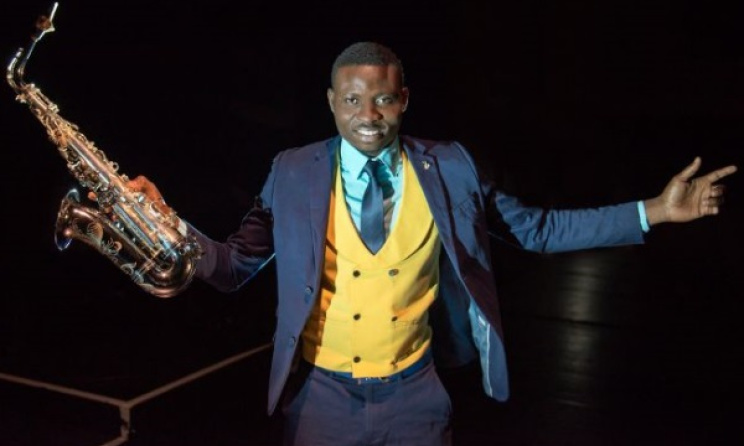 South African-based Nigerian jazz musician Ola Sax. Photo: www.olasax.com
South African-based Nigerian jazz musician Ola Sax. Photo: www.olasax.com
Highlife defines the soul of Nigerian music. Borrowed from neighbouring Ghana, it found a new musical expression as Afrobeat when the late Fela Anikulapo-Kuti infused it with indigenous Yoruba rhythms and his own inimitable saxophone phrasing and rebel lyrics delivered in Pidgin English.
And years after the king of Afrobeat’s passing, the soulful and revolutionary genre continues to flourish in the smoky clubs of the sprawling suburbs of Lagos – thanks to subsequent generations of Fela admirers and his heirs, Femi and Seun Kuti.
But this rich cultural heritage hasn’t deterred young Nigerian musicians from trekking south in pursuit of new and different forms of musical expressions. For these young and adventurous artists, South Africa is not only the land of economic opportunities but also the home of a rich jazz heritage.
Nigerian musician Adetola Olaiya Aina, 35, is one of the admirers of South African jazz and he has found a new home in Rustenburg, North West province.
Born into a musical family, he sang in the church choir and, in his teen years, played the flute in marching bands. But as he grew up he realised that the instrument wasn’t offering him the musical fulfilment he wanted. “I later switched to a trumpet but my playing didn’t find resonance with my surroundings in Lagos,” he says. “The country is steeped in highlife and I was searching for a more jazzy sound.”
Inspired by the music of illustrious saxophonists such as Charlie Parker, Sonny Rollins, Fela Kuti, Dave Koz and Kirk Whalum, he switched to a saxophone. “Fela has always been an inspiration to me and generations of other Nigerian musicians. When I decided to switch to a sax, I locked myself in a room for two weeks practising. It was a unique and fulfilling experience.”
He is proficient in soprano, alto and tenor and says when he decided to come to South Africa in 2006, he only had one saxophone and the equivalent of R10 in his pocket. “But I was determined to succeed against all odds and to make my dreams a reality. I realised that although back home I was into jazz through American artists, South Africa was the place where a young saxophonist could tap into its rich jazz heritage. I’m also impressed by the fact that the country is blessed with a vibrant live jazz scene.”
Popularly known by his stage name Ola Sax, he reveals that it was the immigrant spirit to succeed in his adopted home that inspired his debut album. Titled Expression, he released it under his own label, Olliray Production Publishing. “The message is that in life people shouldn’t give up on their dreams,” he explains. “The essence of this album is me encouraging fellow musicians to pursue their goals.
“A track like ‘Sunny Side of Life’ was inspired by a real-life experience. I was walking one morning on the streets of Sunnyside, a suburb in Pretoria, and my spirits were lifted by the ordinary people such as hawkers determined to make an honest living. Their efforts have taught me to focus on the bright side of life even when the chips are down.”
The album features no less than 18 musicians from Nigeria, the Congo and South Africa. Interestingly enough, they include his mother, Abiola Aina, and Babsy Shilubane, a vocalist from Tzaneen, Limpopo. “My mother is a preacher, singer and prophet. She raised me and my siblings in church where I sang and was taught to honour God and respect fellow humanity,” he says with pride. “This album is a tribute to her.” Church, he adds, is still a big part of his life.
On the surface, the music is saxophone jazz in the tradition of smooth jazz exponents like Kenny G, Dave Koz and Grover Washington, to mention a few. But careful listening reveals a unique work that marries Afro-jazz and Afro-pop to produce a kaleidoscope of fresh melodies, eclectic scales and whimsical harmonies. “I have labelled my sound Afro-soul although I have included various styles, ranging from jazz to fusion and house to salsa,” he explains. “It was a way of bringing together people from various backgrounds because I believe that music is a universal language.”
As if to underscore his point, the exquisite vocals are delivered in a number of African languages, including Igbo (Nigeria), Lingala (Congo), Tsonga (SA), Xhosa (SA), Yoruba (Nigeria) and Zulu (SA). “I have used different artists on various tracks primarily because I wanted different sounds on some of the tracks,” he explains.
As well as being composer and arranger, Ola Sax also produced the album. “It was important for me that I had to personally produce it because I was looking for a specific sound and I’m very happy with the results.”
Expression was recorded by Zakhele Mabena at the State Theatre’s Open Mic Studio, a place where Ola Sax met and worked with Sello Galane, the first South African artist he knew. “I have nothing but immense respect for him. He taught me a lot and introduced me to other South African artists who have since become treasured colleagues.”
Some of these artists are featured in this album and include vocalists Johnny Vilakazi and Ntombifuthi Nhlapo, Phura Sibanyoni (bass), Surprise Ndzimande (keyboards) and guitarist Billy Monama.
And then there are South African artists who have collaborated on albums with their counterparts from the continent. These musical dialogues no doubt can act as a catalyst for better understanding and tolerance among Africans of different backgrounds.
Originally published on 22 April 2016 in the African Independent.



















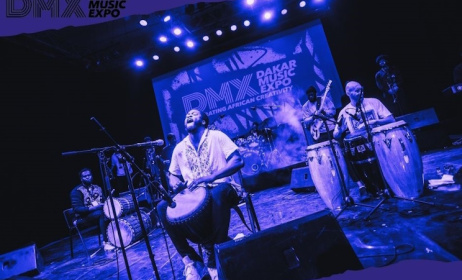
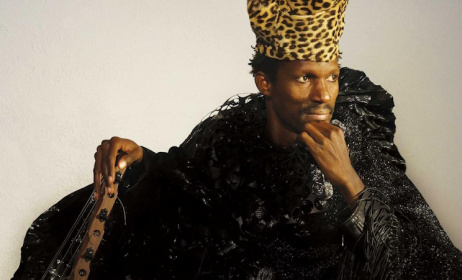

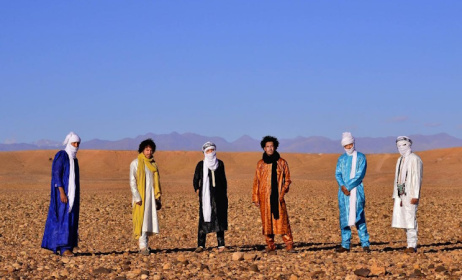
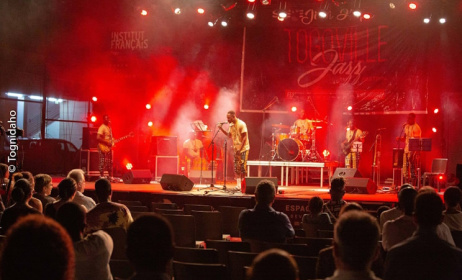
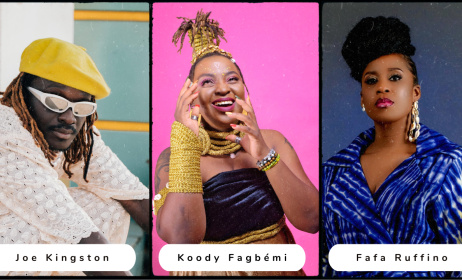


Commentaires
s'identifier or register to post comments